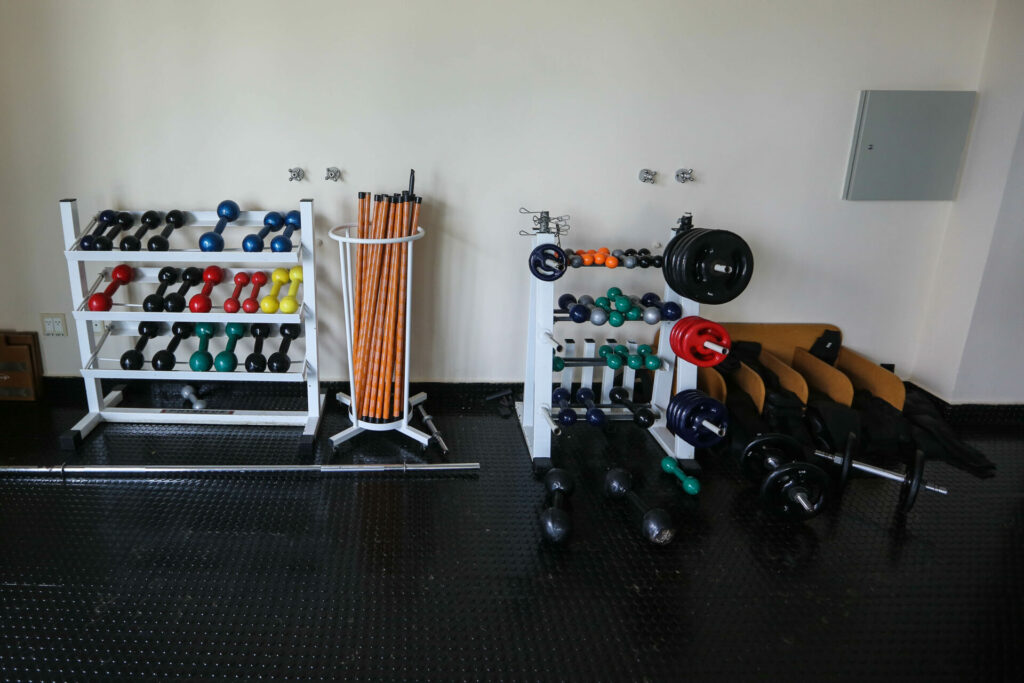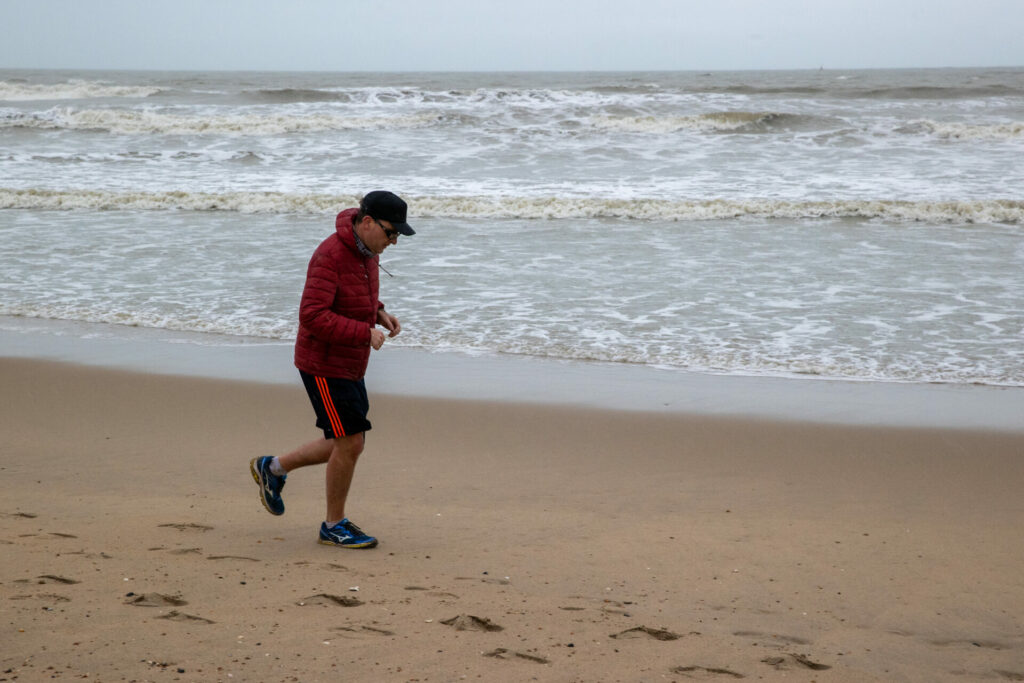Employers are increasingly promoting an active lifestyle among their employees, but despite the evidence of health benefits for workers, more than one-third don't exercise at all.
From a short run to a session of padel — a racket sport mixing tennis and squash that became increasingly popular in Belgium in recent years — even a short period of physical activity every day before or after work can help people feel happier, but also help prevent other complaints.
"Sport releases happiness hormones — endorphins — making you feel better in your own skin. So getting enough exercise is good for your body as well as your mind. In dark times, this is hugely important," said Sylvia Vanden Avenne of HR services Liantis, which carried out an analysis of 110,816 Belgian employees.
"We know that most employee complaints are about mental problems on the one hand and joint problems on the other. To the back and knees, for example. More exercise has a direct impact on this."

Credit: Belga / Vaness Carvalho
Despite these known benefits, the survey found as many as 36% of all employees do not do sport or exercise before or after work, while 40% of people work out less than three times a week. Just a quarter of respondents do so at least three times a week.
Difference between sectors
In certain sectors, such as in the healthcare sector, employees indicate that they exercise more after working hours than the average (63.7%), but in others, the number of employees indicating that they do not exercise is significantly higher, such as in the transport sector (44%) and in administrative and support services (43%).
The figure is also high in the construction sector (42%). However, even for employees in such a physically active sector, it is important that people exercise enough, Professor Dr Els Clays (UGent, Department of Public Health), explained.

Man jogging on the beach during storm Bella, Sunday 27 December 2020, in Ostend. Credit: Belga / Kurt Desplenter
"Workers in physically active jobs often assume they are already exercising enough at work to be healthy, but research contradicts this. In fact, physical activity at work does not appear to have the same beneficial effects as physical activity in leisure time. The exercise you do at work is usually of a different nature, making it taxing rather than beneficial," she said.
Related News
- Study identifies the possible fitness trends for 2023
- Three winter sports centres open in East Cantons
In light of these figures, Liantis stressed that exercise at and alongside work is a shared responsibility. "Employers are offering workshops, raising awareness, and are providing the necessary infrastructure such as showers and changing rooms," said Vanden Avenne.
"But of course, it is also up to the employees themselves to respond to this and choose a more active lifestyle and exercise sufficiently themselves. This certainly does not have to cost a lot of money: a daily walk after work can already do a lot," she concluded.

